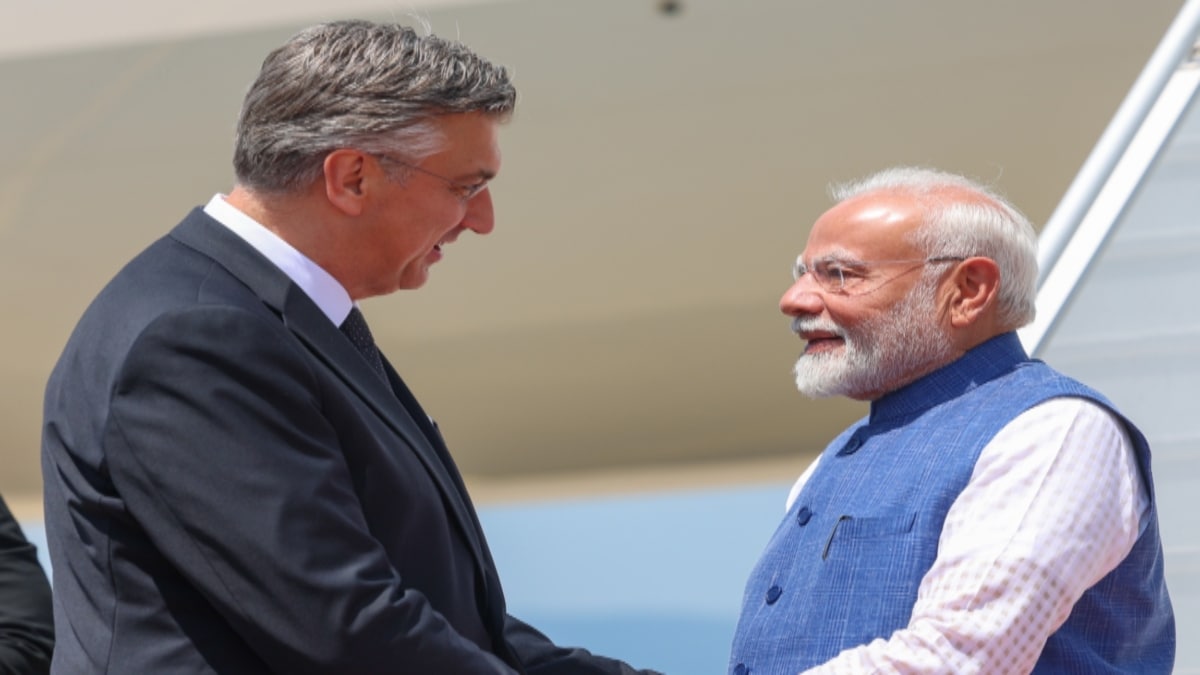India and Croatia have strongly condemned terrorism in all its forms and called for urgent global efforts to dismantle terrorist networks and eliminate their safe havens, during Prime Minister Narendra Modi’s landmark visit to the Balkan nation, the first ever by an Indian prime minister.
In a joint statement issued on June 18, a day after PM Modi’s talks with his Croatian counterpart Andrej Plenković, both countries reaffirmed their commitment to a “zero-tolerance” policy against terrorism, including transnational and cross-border threats. They also highlighted the importance of swift justice for perpetrators and the need to disrupt financing channels through multilateral frameworks like the UN and the Financial Action Task Force (FATF).
STORY CONTINUES BELOW THIS AD
The leaders also condemned the use of terrorism as a state proxy and urged concerted action against all UN- and EU-designated individuals and entities, including those listed under the UNSC 1267 sanctions regime.
More from World
Expressing concern over the “deteriorating security situation” in West Asia, the joint statement called for de-escalation between Israel and Iran. PM Modi thanked Croatia for its solidarity following the April 22 terror attack in Pahalgam, Jammu & Kashmir.
Prime Minister Modi thanked Prime Minister Andrej Plenković and Croatia for the support and solidarity extended in the aftermath of the terrorist attack in Pahalgam, Jammu & Kashmir on April 22, it said.
”Both sides condemned terrorism and violent extremism in all its forms and manifestations, including transnational and cross-border terrorism. They reiterated their zero-tolerance approach to terrorism, rejecting any justification for such acts, under any circumstances,” said the joint statement issued by the Ministry of External Affairs.
They emphasised that those responsible for the attacks should be ”held accountable” and ”condemned the use of terrorists as proxies”, it added.
”They expressed their consistent position of supporting the full implementation of the UN Global Counterterrorism Strategy, key international conventions and protocols in this field, and relevant resolutions of the United Nations Security Council.
STORY CONTINUES BELOW THIS AD
”They called for the disruption of terrorism financing networks, including through the UN, FATF and regional mechanisms, elimination of safe havens, dismantling of terrorist infrastructure, and bringing perpetrators of terrorism to justice swiftly,” the statement said.
The two leaders also urged for ”concerted actions against all UN- and EU-designated terrorists and terrorist entities”, associated proxy groups, facilitators and sponsors, including terrorists under 1267 UNSC Sanctions Committee.
The two leaders noted the importance of improving connectivity, including through the India–Middle East–Europe Economic Corridor (IMEEC) initiative.
They agreed to ”expand cooperation” in ports and shipping domains given the long maritime traditions of both countries. Both sides agreed to further explore the potential of Croatia serving as a Mediterranean gateway to Central Europe, it said.
In this context, they also reaffirmed full respect for international law of the sea as reflected in UNCLOS, and for the principles of sovereignty, territorial integrity, and freedom of navigation, to the benefit of maritime security and internati

